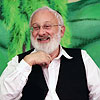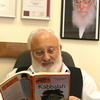What Would It Be Like To Live In A Perfect World?
 No one has the slightest idea of what will happen to the economy a second from now. Experts create the most complicated models to try and predict the future based on past experience, but even the most precise statistic is just a slight distraction from the uncertainty that weighs down on us. More and more, the leading economic analysts conclude their articles with a hint: as long as the global markets are uncertain, we shouldn’t bet on the future.
No one has the slightest idea of what will happen to the economy a second from now. Experts create the most complicated models to try and predict the future based on past experience, but even the most precise statistic is just a slight distraction from the uncertainty that weighs down on us. More and more, the leading economic analysts conclude their articles with a hint: as long as the global markets are uncertain, we shouldn’t bet on the future.
What’s really the problem? Why don’t we know what will happen to the systems that we have created? Experts say: “The problem is a combination of too many factors.” However, there is a clearer explanation: the system can no longer continue working by the principle of the circular firing squad. Today, in the age of turbo-globalization, you can’t sneeze without the entire system vibrating back at you. Alan Greenspan, the head of the US Federal Reserve System said: “The main reason for what is happening is human nature, which does not fit the boundaries of the economic models.” He said this back in September 2007. He also admitted that using regulation to fight crises has never been effective.
The problem is not that the unpredictable human nature makes us act for the sake of our narrow personal interests. This is what happened in the past, but today the situation has changed dramatically: we have all become an integral system, one whole. This is why all the old methods aren’t helping us.
Life demands that we bring our nature to equivalence with the new reality. Instead of repeating old mistakes, let’s use successful, time-tested models as an example. There are many wonderful examples of integrality and true reciprocity.
For example, take the human body. It completely depends on the altruistic behavior of its cells. Each cell works for the benefit of the organism, keeping only what it needs to continue performing its function. In fact, we are speaking about a precise regularity: every natural system depends on the proper interaction of its parts. As soon as one cell starts harming the organism instead of benefiting it, the rest of the cells unite to help the organism and return the system to balance.
And we are no exception. Baal HaSulam – the great Kabbalist of the previous century – writes that we need to treat the laws of nature with caution: “Every person who breaks the laws of nature deviates from the goal that nature has set for him, and hence nature will punish him.” This brief description of the mechanism of the modern crisis was written over half a century ago.
There are no appeals in nature’s court. And we are far from following nature’s laws. We live by the motto: “Get rich, be bold – no matter at whose expense.” This is what our inner voice whispers to us, and we gladly obey it.
This is where the problem lies. Imagine what will happen if one cell suddenly “changes its mind” and starts caring only for itself. Doctors have a simple name for this: cancer. Hence, the present crisis is a symptom of an illness that needs treatment.
As soon as humanity became a single system, it immediately started being governed by the corresponding laws. We are no longer “forgiven” for the things that we could get away with before. Continuing to live the old way is like jumping off the roof of a skyscraper and hoping for the best. The rules of the game have changed: now, instead of using one another, we have to take care of everyone. And until we dare to do this, the crises will continue afflicting the planet.
There is an effective method that can help us to ease the process of changing – social opinion. Everything will become much easier when communication channels, the press, mass media, and the internet will explain to people that we are all part of one system where one individual’s loss is everyone’s loss, and everyone’s gain is the gain of every individual.
The way million of dollars are being poured into the economy today is like pumping a critically ill person with pain relievers. Instead, we must fundamentally change our very approach and replace the “I” that currently stands at the center of our worldview, with “the society.” However, this society won’t be a bubbling mass of separate elements, but a family.
Just imagine: everyone around you are your closest relatives. You sincerely wish for all of them to be happy and you help them all, and they feel the same way about you and help you. In addition, we receive all the assistance necessary to maintain such a lifestyle from the financial institutions. This way we attain balance between us and with nature. It’s because the laws operating in a loving family are the exact same laws that we are now breaking – the laws of a single, integral, and perfect system.
(Written by the Bnei Baruch publishing dept. manager).
Related Material:
Kabbalah Today Article: What Is Happening to Our Economy?

 Egoistic religion: Nature and Science, the two most quoted science magazines, have published synoptic articles on the origin of religion (“
Egoistic religion: Nature and Science, the two most quoted science magazines, have published synoptic articles on the origin of religion (“







